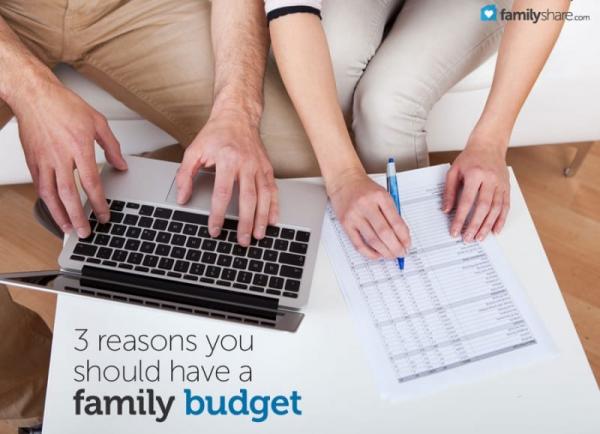
I married an accountant who grew up with very frugal parents. I joke that by the time I realized he was thrifty, it was too late to back out. In reality, it's a blessing to have a spouse who is conscientious about saving money. Having a budget brings me and my spouse closer together as we manage our family's finances and plan for our future. Here are three reasons you should use a family budget.
1. Spend well
It's hard to know where your money is going if you aren't keeping track of it. Have you ever gotten $20 cash back only to have it disappear within a few days? If you're new to budgeting, start by keeping track of all your expenses for a month. Then, group expenses into categories. You can be very general, with categories like food, auto and utilities, or as specific as baby needs and internet. Then, assign a spending amount to each category and try to stick to it. Of course, your total spending should be less than your income.
Believe it or not, it's fun to adjust categories and try to spend more efficiently. We enjoy building up categories like vacation, and then planning a trip with the money we've saved. Saving year-round for Christmas and birthdays also helps. Our income varies a little bit in the summer months, so we've built our budget around the dip in monthly income. Some years we've set a goal to spend as little as possible for an entire month in order to shore up our savings account. Keeping track of our expenses helps us to be good stewards of our income.
2. Plan for the future
Financial experts often give the advice to pay yourself first. This means to save money when you first get your paycheck, not after you've paid all your other expenses. Having a budget helps you plan for the future and build up your savings, whether you're trying to pay off your house early, save for the perfect vacation, put money aside for emergencies or save for future college expenses.
It's hard to know a how much to save if you aren't sure where your money is going. Ideally, around 10 percent of your income should be saved each month. If this isn't reasonable for you, set an amount that is, even if it is just a few dollars. If you can have that amount put into a savings account automatically, you may not even miss it. Our budget helps us work towards retirement and family savings goals together.
3. Reduce disagreements about money
It's no surprise that different people have different ideas on how to spend money. I often prefer quality over quantity, but my husband has a hard time spending what he perceives to be, "too much"� on an item. Creating categories and allotting money each month helps us both stay on track. For example, I would like to buy new couches for our living room. Several months ago, we decided a set amount to save each month towards furniture. Now that we've saved enough, we can buy new couches. Of course, we'll probably still have trouble deciding which couches to buy.
About once a month we sit down and review our budget. Being transparent about expenses is important. We each have personal spending money we don't have to be accountable for, but other than that we review most transactions together. This helps us keep things like clothing and entertainment purchases in check, as well as make sure we are saving. Even during lean times, budgeting and planning together helps us be united in our financial plan and avoid arguing.
If you're still not sure about budgeting, this article from the Wall Street Journal gives several tips on why and how to have a personal budget. Teach your children how to budget too, which will help them understand how a household functions financially. No matter what your saving or spending style, keeping track of your money by using a budget is a wise move. Try it!

